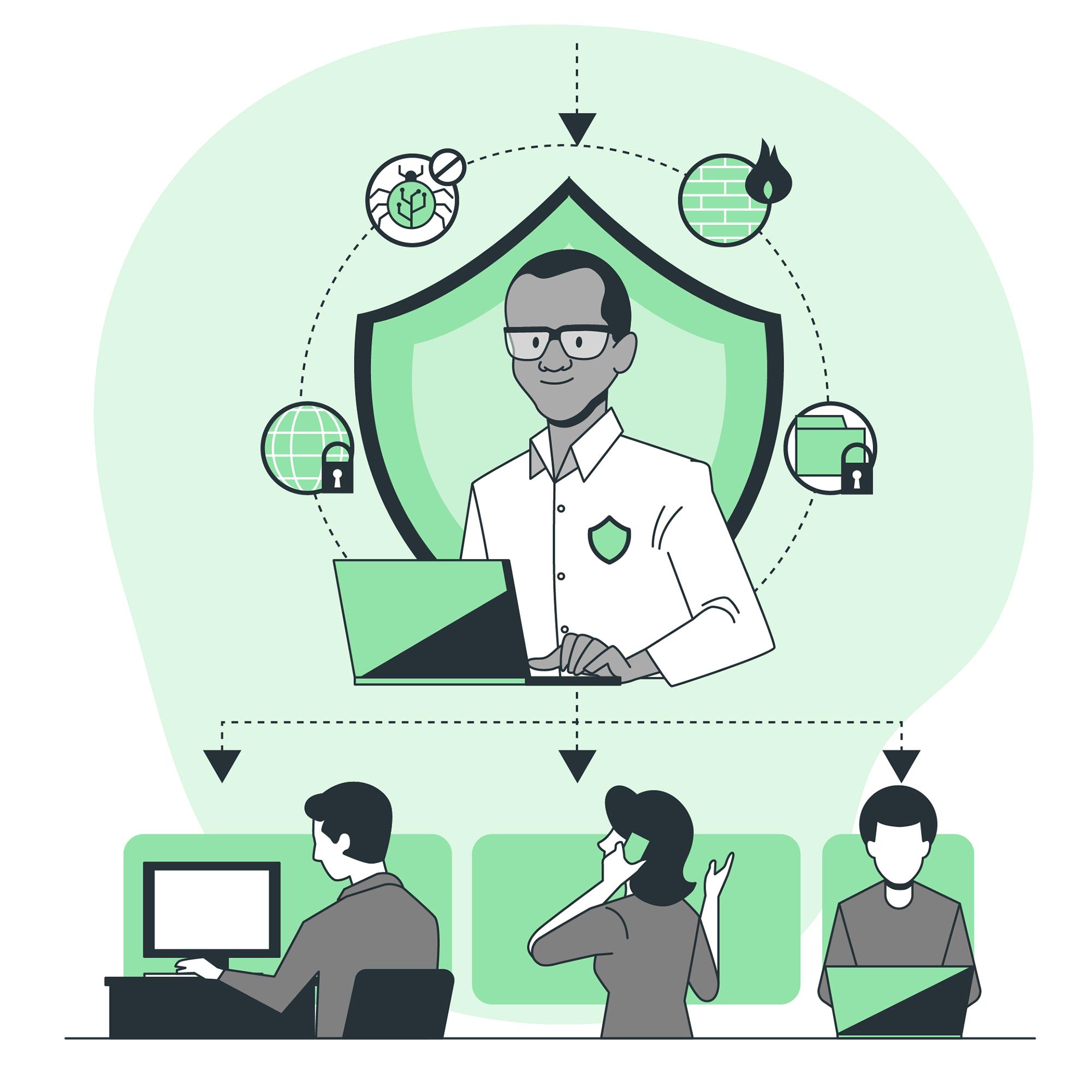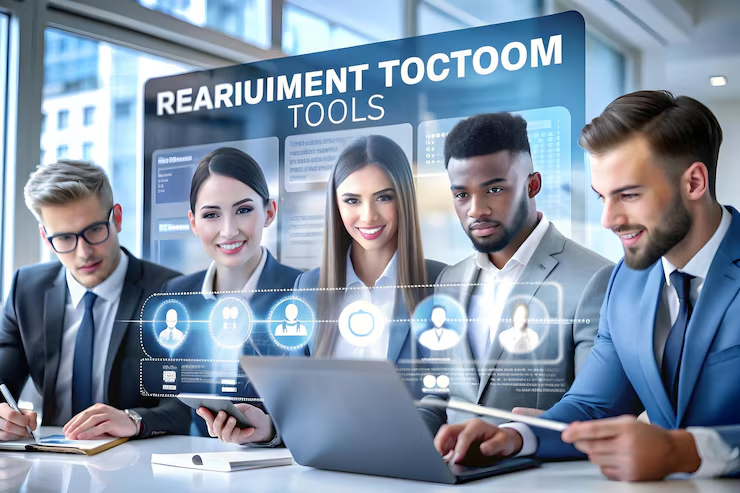The Role of Blockchain in HRMS Security
Modern digital workplaces require human resource management systems (HRMS) to handle both employee confidentiality data and payroll operations and organizational process flow management. Security measures must be established because the availability of convenience requires urgent attention. An unsecured HRMS system exposes crucial information which results in financial losses in addition to legal and reputation-based consequences. The main reason for implementing Blockchain in HR operations becomes evident through this statement.
The protection of data primarily depends on encryption procedures, as well as access management systems. Additionally, security regulations compliance plays a crucial role in safeguarding not only staff members but also enterprise assets. Therefore, a comprehensive approach is essential to ensure effective data protection. The following article evaluates Blockchain’s vital role within HR departments.

Let’s Know Something about the technology of Blockchain
Blockchain is a digital technology that allows safe storage and recording of data without needing central control. Instead of relying on a single authority, information on a blockchain is shared across many computer systems. This makes the system both secure and transparent. Data is stored in blocks that connect to each previous entry, forming a chain.
Data recorded through blockchain becomes unalterable and undetectable after documentation thus minimizing both errors and fraud. Blockchain technology provides benefits for Bitcoin cryptocurrency security and enables banking institutions along with supply chain and healthcare providers to secure transactions and lower costs while increasing user trust.
Why is it essential for the HR industry to pursue advancement?
-
Automation of Repetitive Tasks
AI systems and HRMS technologies not only streamline operations, but also allow HR departments to dedicate their time to developing important strategic plans. Thus, by leveraging these tools, organizations can enhance their efficiency while focusing on long-term goals. Consequently, HR teams can shift their attention from administrative tasks to more impactful initiatives.
-
Improved Employee Experience
HR technology at an advanced stage creates greater workforce engagement, enables better organizational communication, and provides improved work-life integration to employees.
-
Data-Driven Decision Making
The combination of AI systems and analytics enables human resources teams to generate knowledge-based workforce planning as well as talent management decisions.
-
Remote and Hybrid Work Management
The present tools foster distributed teams to function efficiently while enabling smooth productivity and collaborative work practices.

Do you want to know more about our hihellohr Software?

-
Stronger Compliance & Security
Organizations equipped with advanced HR technologies achieve better data security standards as well as superior regulatory compliance.
-
Enhanced Talent Acquisition
AI recruitment tools enhance hiring operations by simplifying candidate choice and recruitment techniques.
-
Personalized Learning & Development
Workers who learn through AI-based training platforms gain professional advancement possibilities along with career opportunities.
-
Diversity & Inclusion Initiatives
HR solutions based on data allow organizations to develop workplaces that represent fairness along with inclusivity.
Key Concepts Explored by Blockchain in HR Management Fundamentals
Enhanced Compliance and Auditing
Secure Employee Data Management
Attendance and Workforce Tracking
Improved Talent Acquisition
Verified Digital Credentials
Decentralized Payroll System
Facilitates global payroll processing with reduced transaction fees and faster cross-border payments.
Employee Performance and Rewards
It enables the transparent process of performance measurement combined with fair wage distribution practices.
Smart Contracts for HR
What is the future version of HRMS Security, implementing the Advanced Blockchain Technology
Immutable Data Storage
- The HR records stored on the blockchain remain unalterable and undeletable.
- The system helps organizations avoid both data deception and fraudulent activities.
- Blockchain creates an unalterable framework to safeguard employee-related information.
Enhanced Data Encryption
- Secure encryption through cryptography protects all sensitive HR information.
- The system blocks unauthorized entry for both payroll files and contracts and personal information.
- Blockchain provides full protection of data security for every phase of a transaction process.


Decentralized Data Management
- The system operates beyond a single server which makes organizations less susceptible to hacking threats.
- Distributes HR data across multiple secure nodes.
- Increases resilience against cyberattacks and system failures.
Verified Digital Identity
- The authentication of employees can be done safely through blockchain technology-based digital ID systems.
- Blockchain ensures that employee identity information remains secure from criminals who try to commit theft or fake employee identities for fraud purposes.
- Presents a mechanism to handle HR system access permission securely.
Smart Contracts for Secure Transactions
- The system delivers automatic secure processing capabilities for employee payroll as well as benefits together with contractual agreements.
- The system blocks both human mistakes along deceitful conduct.
- Users can achieve term compliance through blockchain-based operations without involving third parties.
Transparent Background Verification
- The records of employee credentials become securely stored through Blockchain technology.
- The system wipes out incorrect educational documents and artificial work histories.
- The onboarding procedure together with hiring activities becomes faster due to Blockchain-based implementation.
Tamper-Proof Audit Trails
- All human resources transactions become part of an unalterable transaction log system.
- The system helps organizations maintain compliance throughout their operations by maintaining precise records.
- Audits become easier to conduct while legal risks decrease through this process.
Improved Employee Privacy Protection
- All personnel maintain authority over their personal data information.
- Users can share certain data through blockchain technology only with verified organizations and entities.
- GDPR data protection standards achieve better compliance because of this system.


Secure Payroll Processing
- Payroll operations that depend on blockchain technology deliver encrypted information transfer through real-time transactions.
- The system prevents salary alteration by unauthorized staff and decreases payment-related deceit.
- The system allows businesses to execute secure borderless payments at reduced fee levels.
Access Control & Role-Based Permissions
- The system authorizes specific personnel to retrieve sensitive information from the HRMS platform.
- The system employs blockchain authentication that provides users with role-based authorization.
- This implementation decreases the probability of both insider dangers and security breaches.
Conclusion
HR operations will experience revolutionary change when blockchain technology integrates with HRMS security systems for data reliability maintenance alongside transparent data access and cyber threat prevention. Blockchain operates through a decentralized network which reduces the threats from data breaches together with unauthorized access and fraudulent activities. Payroll and employee data security improves thanks to blockchain features that maintain unalterable records in combination with encrypted transactions alongside smart contracts.
The implementation of blockchain technology by HR sectors can accomplish dual security enhancements as well as operational simplification and cost reduction to create a dependable and efficient HR ecosystem that benefits global businesses.
Related Articles:




